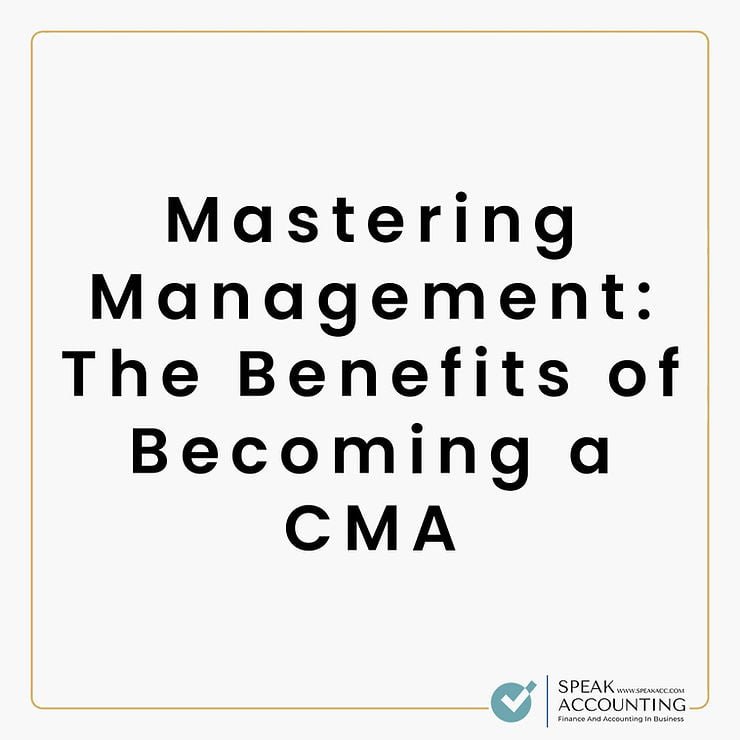Introduction (How Hard is the CMA Exam? )
Embarking on the journey to become a Certified Management Accountant (CMA) is a significant step in one’s professional career. However, the road to achieving this prestigious credential is known to be demanding. In this article, we will delve into the intricacies of the CMA exam’s difficulty, dissecting its structure, pass rates, and the various factors that influence its level of challenge. Moreover, we’ll provide valuable tips and strategies for effectively preparing for this formidable examination, Let’s discover How Hard is the CMA Exam?
The CMA Exam in Brief
Before we explore the perceived difficulty of the CMA exam, let’s first gain a clear understanding of what this exam entails. The Certified Management Accountant (CMA) designation is globally recognized, emphasizing the management accounting and financial management skills that are essential in today’s business environment. The CMA exam consists of two parts, each covering distinct domains of expertise.
Part 1: Financial Planning, Performance, and Analytics
Part 1 of the CMA exam focuses on financial planning, performance, and analytics. It encompasses topics such as cost management, budgeting, and financial statement analysis. This section is designed to evaluate candidates’ proficiency in managing financial data and making strategic decisions based on it.
Part 2: Strategic Financial Management
Part 2 of the CMA exam delves into strategic financial management, covering areas like risk management, investment decisions, and corporate finance. Successful completion of this part demonstrates a candidate’s ability to contribute significantly to an organization’s financial strategy and decision-making.
Time Constraints
One aspect that adds to the challenge of the CMA exam is the time constraint. Each part of the exam consists of two sections: multiple-choice questions (MCQs) and essays. Managing time effectively to tackle both formats is a crucial skill that candidates must develop.
Analyzing the Difficulty of the CMA Exam
Comprehensive Coverage
One reason the CMA exam is perceived as challenging is its comprehensive coverage of topics. It demands a deep understanding of various areas within management accounting and financial management. From cost accounting nuances to strategic financial planning, candidates must exhibit a broad knowledge base.
Analytical Skills Required
The CMA exam isn’t just about rote memorization; it requires candidates to apply analytical thinking. They must dissect complex scenarios, identify key financial insights, and formulate sound recommendations. This analytical demand adds an intellectual challenge to the exam.
Balance of Multiple Choice and Essays
The CMA exam strikes a balance between multiple-choice questions and essay responses. While MCQs test candidates’ knowledge, essays evaluate their ability to articulate and justify their answers. This dual approach means candidates must be well-rounded in their skills.
Pass Rates and Comparison for the CMA Exam
CMA Pass Rates
Understanding the pass rates can provide insight into the exam’s difficulty level. Historically, the CMA exam has had a lower pass rate compared to some other accounting exams. This lower pass rate may be indicative of the exam’s challenging nature.
CMA vs. Other Accounting Exams
Comparing the CMA exam to other accounting exams further highlights its level of difficulty. While exams like the Certified Public Accountant (CPA) exam have a broader scope, the CMA exam’s focus on management accounting and financial management sets it apart, making it more specialized and demanding.
The factors that make the CMA exam hard or easy.
Background and Experience
The difficulty of the CMA exam can vary from one candidate to another, depending on their background and experience. Those with prior knowledge in accounting and finance may find certain sections more manageable. However, it’s essential to note that even experienced professionals can encounter challenges due to the exam’s depth.
Study Methods and Resources
How candidates prepare for the CMA exam plays a significant role in determining its level of difficulty for them. Those who invest in comprehensive study materials, engage in rigorous practice, and seek guidance from experienced mentors are more likely to navigate the exam successfully.
Personal Experiences
To gain a deeper understanding of the CMA exam’s difficulty, we spoke with CMA candidates who generously shared their experiences.
Interviews with CMA Candidates
Candidates unanimously emphasized the exam’s rigor. They stressed the importance of time management, understanding the exam format, and practicing with sample questions. However, they also highlighted the sense of accomplishment that comes with conquering the challenge.
Real-World Insights
Many candidates found that the knowledge gained while preparing for the CMA exam had immediate real-world applications in their roles. This practical aspect added value to the difficulty they encountered.
Tips and Strategies for Success
- Start Early: Begin your preparation well in advance to allow sufficient time for thorough understanding and practice.
- Use Quality Study Materials: Invest in reputable CMA review courses and study guides to ensure you’re covering all necessary topics.
- Practice Regularly: Practice is key to success. Work through a variety of sample questions and practice exams to become familiar with the exam format.
- Time Management: Develop effective time management skills, especially for the essay section. Allocate specific time for each question and stick to it.
- Seek Support: Don’t hesitate to seek guidance from mentors or join study groups to share knowledge and strategies.
- Stay Informed: Keep up with updates and changes to the CMA exam syllabus to ensure your preparation remains relevant.
Conclusion
In conclusion, the CMA exam is undeniably challenging, but it is not insurmountable. Its comprehensive coverage, analytical demands, and the balance between MCQs and essays contribute to its reputation for difficulty. However, with dedication, effective study methods, and a solid understanding of the exam’s structure, candidates can successfully overcome this challenge.
Final Thoughts on CMA Exam Difficulty
The CMA exam’s difficulty serves as a testament to the value and prestige of the CMA designation. Aspiring CMAs should approach the journey with determination, recognizing that the effort invested will not only lead to certification but also sharpen their financial management skills for a rewarding career ahead. By following the tips and strategies outlined here, you can confidently navigate the path to becoming a Certified Management Accountant.




